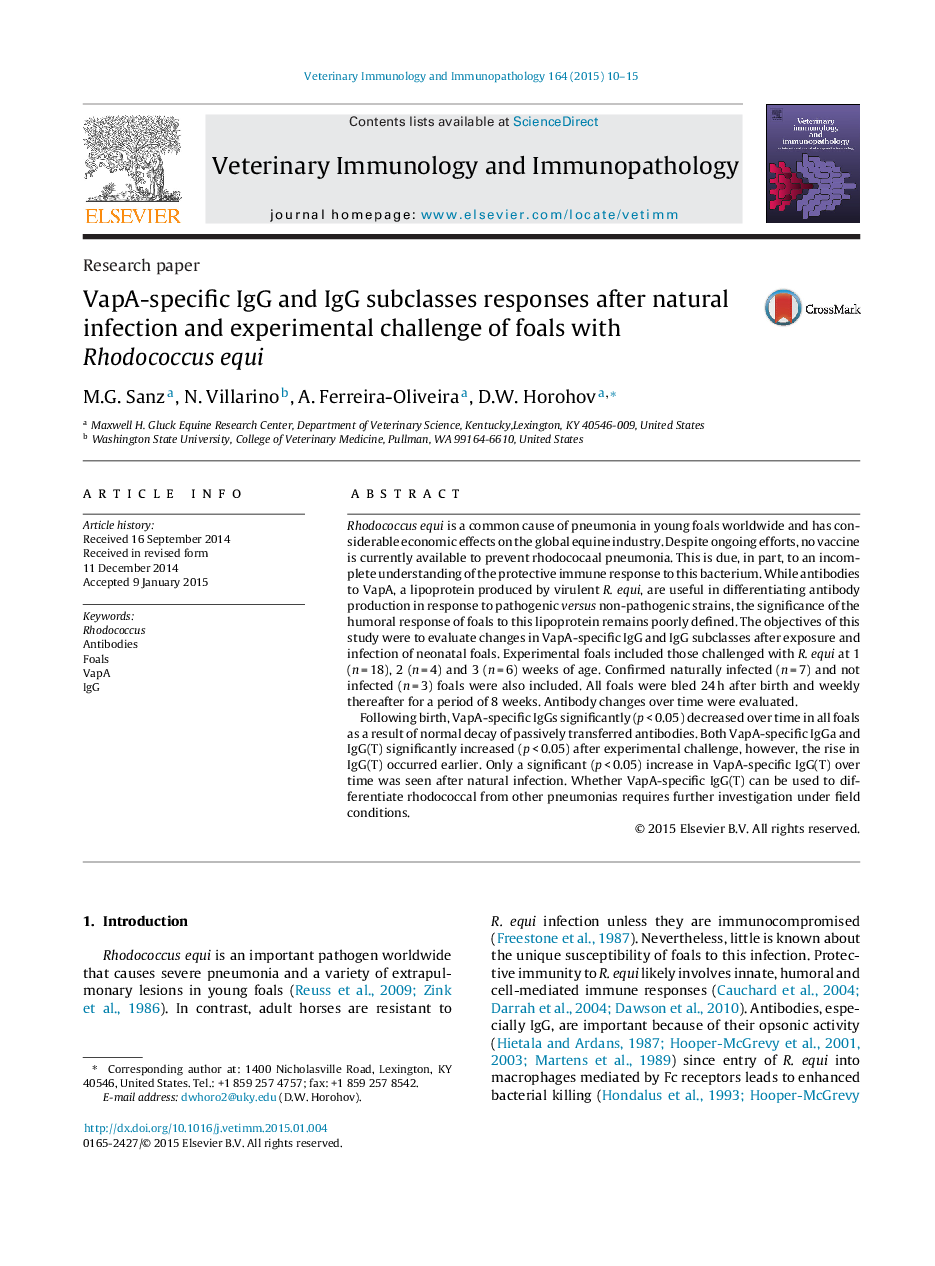| Article ID | Journal | Published Year | Pages | File Type |
|---|---|---|---|---|
| 5796743 | Veterinary Immunology and Immunopathology | 2015 | 6 Pages |
Rhodococcus equi is a common cause of pneumonia in young foals worldwide and has considerable economic effects on the global equine industry. Despite ongoing efforts, no vaccine is currently available to prevent rhodococaal pneumonia. This is due, in part, to an incomplete understanding of the protective immune response to this bacterium. While antibodies to VapA, a lipoprotein produced by virulent R. equi, are useful in differentiating antibody production in response to pathogenic versus non-pathogenic strains, the significance of the humoral response of foals to this lipoprotein remains poorly defined. The objectives of this study were to evaluate changes in VapA-specific IgG and IgG subclasses after exposure and infection of neonatal foals. Experimental foals included those challenged with R. equi at 1 (n = 18), 2 (n = 4) and 3 (n = 6) weeks of age. Confirmed naturally infected (n = 7) and not infected (n = 3) foals were also included. All foals were bled 24 h after birth and weekly thereafter for a period of 8 weeks. Antibody changes over time were evaluated.Following birth, VapA-specific IgGs significantly (p < 0.05) decreased over time in all foals as a result of normal decay of passively transferred antibodies. Both VapA-specific IgGa and IgG(T) significantly increased (p < 0.05) after experimental challenge, however, the rise in IgG(T) occurred earlier. Only a significant (p < 0.05) increase in VapA-specific IgG(T) over time was seen after natural infection. Whether VapA-specific IgG(T) can be used to differentiate rhodococcal from other pneumonias requires further investigation under field conditions.
